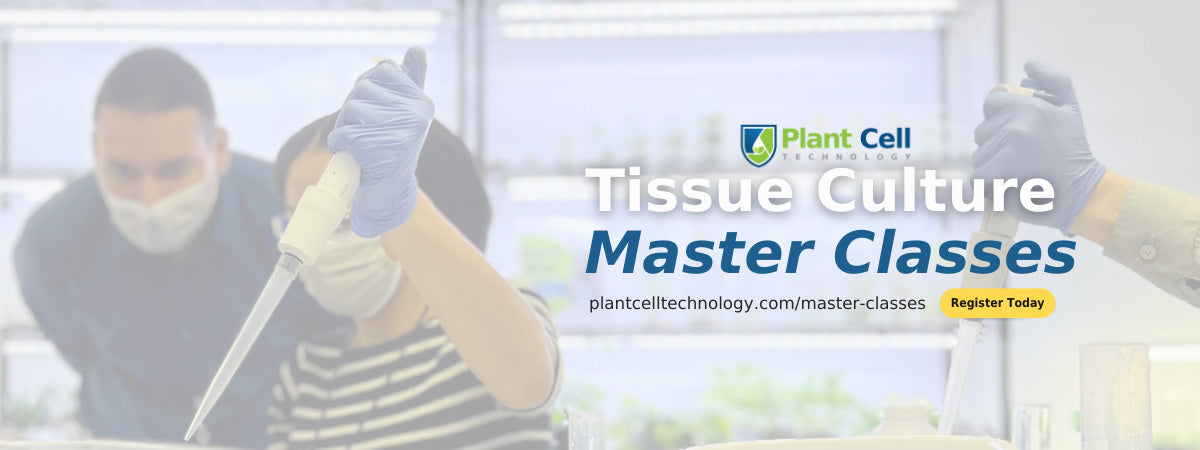
How Can You Best Utilize The Biocoupler™ Bundle?
As a content and community manager, I leverage my expertise in plant biotechnology, passion for tissue culture, and writing skills to create compelling articles, simplifying intricate scientific concepts, and address your inquiries. As a dedicated science communicator, I strive to spark curiosity and foster a love for science in my audience.


The Biocoupler™ Buzz…
It’s not even been a year and the Biocoupler™ has started catching the attention of tissue culturists worldwide.
The simplicity and ease of operating the device and its effectiveness in producing hundreds of plants with no complex setups have made it the most desirable instrument in home-based or small-scale tissue culture labs.
As we say, Biocoupler™ is one of the simplest forms of temporary immersion bioreactor available today in the market. What makes it different from the other temporary immersion devices are:
- No electricity requirement
- Easy operations, such as just tilting once or twice a day manually to immerse your plants in nutrients
- No damages to plants as agitation is not involved or required.
- Simple setup
- Requires less area on your shelf
- Just need two jars to run the experiments
- Can be used in home-based labs and can be sterilized in even microwaves!
And, you will be shocked to find more advantages when you work with the equipment.
To make the use of the Biocoupler™ easier for you, we have also curated a Biocoupler™ bundle for you. This bundle is all you need for multiplying your plants in vitro. But, how to use it, what does it contain, and how it can benefit you?
Find the answers to all of these questions in this article!
What is Biocoupler™ Bundle?

A Biocoupler™ bundle is a small kit containing all you need with Biocoupler™ to run your tissue culture experiment. The bundle is curated to cut down the time you invest in buying each chemical by giving you everything in one package!
The PCT Biocoupler™ Bundle contains:
- 6 Biocoupler™ Glass Sets: The kit contains six sets of glass vessels and a Biocoupler™ to assist in your experiment. To give you an idea, you can multiply 50-100 plants in one vessel, so in 6 you can obtain up to 600 plants. Isn’t it fascinating that the 6 vessels acquiring just 1/4th of space on your shelf contain over 600 plants!!
- 30 mL of Plant Preservative Mixture (PPM™): Is contamination a major issue in your lab? PPM got you covered! Though the Biocoupler™ is efficient in itself to prevent contamination in your cultures by providing an optimum environment. But, mixing your media with PPM provides all-round protection to your plants, against fungi, bacteria, mold, or any other contaminants. You only need 1-2 ml PPM per liter of media. So, 30 ml PPM can be used to prepare 15 L media.
- 10L of MS Media: Every organism needs proper nutrients and vitamins to grow and develop. So do plants growing in natural conditions and so do your lab-grown plants. MS media contains all the nutrients and vitamins your plants need to develop organs and grow healthy in lab conditions.
What’s Most Exciting About Biocoupler™ System?

Here’s the star feature of the Biocoupler™ system and how it can benefit you in your tissue culture experiment.
Highlights of the Biocoupler™ Glass Set
- Resistant to repeated high-temperature autoclave cycles
- Autoclavable
- Virtually unbreakable in regular use
- Microporous vent filter, helping prevent contamination
- Space and time efficient
- Glass jars perfectly suiting to the Biocouplers™
- Contains everything you need to multiply plants in tissue culture
Advantages of Biocoupler™ Glass Set
- Widely used in tissue culture application
- Can multiply plants in hundreds and thousands of number
- Successfully tested for a wide range of plants, including orchids, cannabis, aquatics, succulents, ferns, and carnivorous plants.
- No stress and wasting time on finding a suitable jar that fits the Biocupler™
- No wastage of time and effort on buying individual products for your tissue culture experiment
How To Use Biocoupler Bundle?

This is easy!
The bundle contains everything you need to grow plants in the Biocoupler™ system, including MS media, PPM, and glass vessels. Thus what you need is to learn only to prepare liquid media using the device. You don’t even need to use agar for this process.
Follow the given steps to best utilize the Biocoupler™ in your tissue culture application:
- Prepare liquid tissue culture media using PCT’s MS media and add sugar based on the quantity of media you’re making (generally for 1-liter media, 30 grams of sugar is added). (DO NOT add Agar).
- Take the Biocoupler™ and connect the two jars, that come with it, at their two ends.
- Measure 200 ml of prepared MS media.
- Open one side of the Biocoupler and add the measured 200 ml media to it.
- As you have prepared 1000 ml media, so can prepare a set of 5 Biocoupler™ with 200 ml MS media each.
- After filling the jars, close the Biocoupler™ loosely and autoclave them!
Open the Biocoupler™ under the laminar hood after autoclaving and transfer your plants into it. That’s it!
Biocoupler is the most simple and easy idea to grow your plant business by scaling up your plant production. So, what you’re waiting for, get your Biocoupler™ TODAY!
NEED HELP WITH USING TISSUE CULTURE EQUIPMENT AND INTRODUCING PLANTS TO TISSUE CULTURE? PLANT CELL TECHNOLOGY IS YOUR PARTNER!

We’ve consultation services that allow you to directly talk with our in-house tissue culture expert. He will join you in a video call and will answer all and every question you will have regarding using the equipment or introducing your plants in tissue culture. It’s the best approach to getting instant solutions to your tissue culture problems.
We also curate weekly blogs and videos on tissue culture topics. They are all related to tissue culture equipment, practicals, tips, and tricks, how-tos, basic concepts, and the latest news. Our youtube videos teach you exactly how to carry out the tissue culture operation.

Occasionally, we also bring you comprehensive master classes led by tissue culture experts. So far, we have conducted tissue culture master classes on Cannabis and rare house plants and we have many other classes scheduled for you.
Interested in learning more about our master classes and joining your favorite one? Visit this link now!
Blog Categories
View by Level
Popular Blogs

The Advantage of Temporary Immersion Systems Over Solid Media
Introduction Is it finally time to transition away from agar? If you manage a commercial tissue culture lab or a...
Read More
How Samantha Bridges the Gap Between the Nursery and the Lab
The Introduction Building a tissue culture program from the ground up requires more than just scientific knowledge—it requires the grit...
Read MoreSubscribe to Our Newsletter







Join the conversation
Your email address will not be published. Required fields are marked